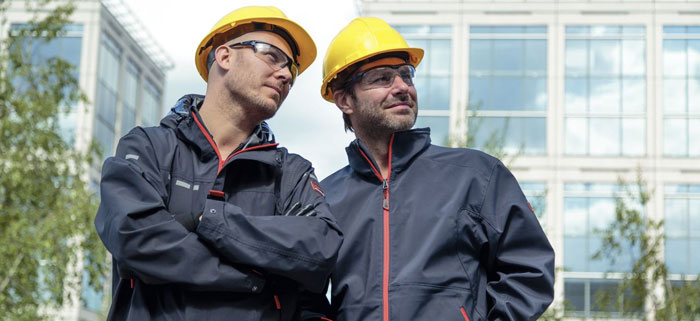Figures from the UK’s Institution of Occupational Safety and Health (IOSH) state that as many as fifteen people are killed each year whilst working within a confined space. Anyone who is required to enter these spaces as part of their job is exposed to a unique set of life-critical health and safety risk factors – each with very little or no leeway for errors.
Understanding the dangers of confined space entry work will involve, making use of the correct portable or personal safety equipment, fixed detection systems, application of certified training, and procedures that can ensure all required personnel’s safety.
What is a confined space?
The Health and Safety Executive classifies confined spaces as any place, including any chamber, tank, vat, silo, pit, trench, pipe, sewer, flue, well, room (of any size) or other similar space which, by virtue of its enclosed nature, there is a reasonably foreseeable specified danger.
What are the Dangers of working within a confined space?
All the spaces listed above are (for the most part) enclosed, although not always entirely. The physical nature of these spaces is such that a build-up of dangerous gases or a drop in oxygen levels can occur either suddenly or (without proper ventilation) over a prolonged length of time – making the local environment hostile to human life.
Due to the dangers present, it is specified that CSE work should be the last resort, having exhausted all other viable options.
There are many types of risks involved with confined space entry, so it is useful to break them down into specific categories to provide a clearer outline of the dangers workers face:
- Fumes or flammable atmosphere in storage tanks or vats
- Oxygen deficiency
- Fumes or vapours released through industrial processes
- Fumes or vapours released through chemical cleaners
- Flammable substances
- Oxygen enrichment
- Excessive heat
- Toxic Gases
- Toxic chemicals
- Corrosive liquids
Risks can be commonplace and a confined space not so easily recognisable, for example, a sewer tunnel or the insides of a storage tank or containment VAT.
The Gas Risks and Hazards
From the outset, it is important to have a good understanding of the specific, most harmful gases that could be present within a confined space, so that the right protective equipment can be carried by your workers or permanently installed at key locations across your operational area.
Hazardous gases can include Volatile Organic Compounds (VOC), Carbon Monoxide (CO), Nitrogen Dioxide (NO2) and Methane (CH4), all of which can have a severe effect on human health.
As both a toxic and combustible gas, Methane (CH4), is of particular concern in confined spaces due to the additional risk of fire or explosion.
Methane is not unique in respect to its danger as the risk of explosion can arise from any flammable substance such as Petrol fumes, Hydrogen, Oxygen, and particulates such as sawdust and Flour – all of which are highly flammable and pose a significant risk of explosion.
The permanent installation of reliable fixed gas detection equipment is a must, and its vital role within your day-to-day operations should be given the highest priority.
If you have any questions as to the type of equipment you need, or would like further advice or information, please call our team on 0845 3300 447 or fill in the contact form at:
https://www.rockallsafety.co.uk/fixed-gas-servicing-application/
Undetected compounds, toxic gases, fumes, or vapours in any space can have an immediate and adverse effect on human health and can include:
- Suffocation
- Unconsciousness
- Severe Burns
- Lung Damage
- Dizziness / Disorientation
- Long-Term (Chronic) Health Problems
Long-term effects of VOCs
Volatile Organic Compounds (VOCs) are substantially present in a range of confined spaces such as:
- Sewers
- Refineries
- Petrochemical plants
- Pulp & Paper Mills
- Container & Cargo Ships
- Aviation Fuel Cells & Wing Tanks
If undetected VOCs within a Confined Space can be incredibly harmful.
In addition to being highly combustible, Volatile Organic Compounds can in themselves be life-threatening, especially regarding a person’s long-term health as VOCs are chronically, rather than acutely toxic – the effects not necessarily being apparent for some time after a person has been exposed. This sort of long-term damage to health is especially prevalent with VOC Benzene.
In the presence of undetected Benzene, workers will begin to experience headaches, lethargy, and weakness – rapidly moving onto “dangerous to life” symptoms.
At 20,000ppm, depression of the central nervous system, cardiac arrhythmia, respiratory failure and death will occur in a very short measure of time.
Also, Benzene is a listed carcinogen. Therefore, continuous monitoring for unsafe levels of these toxic hydrocarbons is crucial to ensure life-saving early warnings.
If you have any questions as to the type of equipment you need, or would like further advice or information, please call our team on 0845 3300 447 or fill in the contact form at:
https://www.rockallsafety.co.uk/fixed-gas-servicing-application/
Oxygen (O) Deficiency
Oxygen is a prevalent concern within, whether displaced by gases and processes as work is carried out or because levels are already below ambient air levels (20.9%) upon first entry into the confined space.
Oxidation (loss of Oxygen) can be caused by rusting metal, combustion using industrial processes such as smelting, heaters, chemical processing, laser cutting, and welding equipment.
Each of these processes can bring about a substantive change in oxygen levels, whether individually or in combination with each other as they interact with your working environment.
Pre-entry testing, portable, and continuous fixed detection of key areas is very important to ascertain oxygen levels of confined spaces and to ensure workers are only within spaces that are safe to be in.
If you have any questions as to the type of equipment you need, or would like further advice or information, please call our team on 0845 3300 447 or fill in the contact form at:
https://www.rockallsafety.co.uk/fixed-gas-servicing-application/
This article is based on the white paper:
“Why is Gas Detection Crucial in Confined Space Entry Work” by Crowcon.





